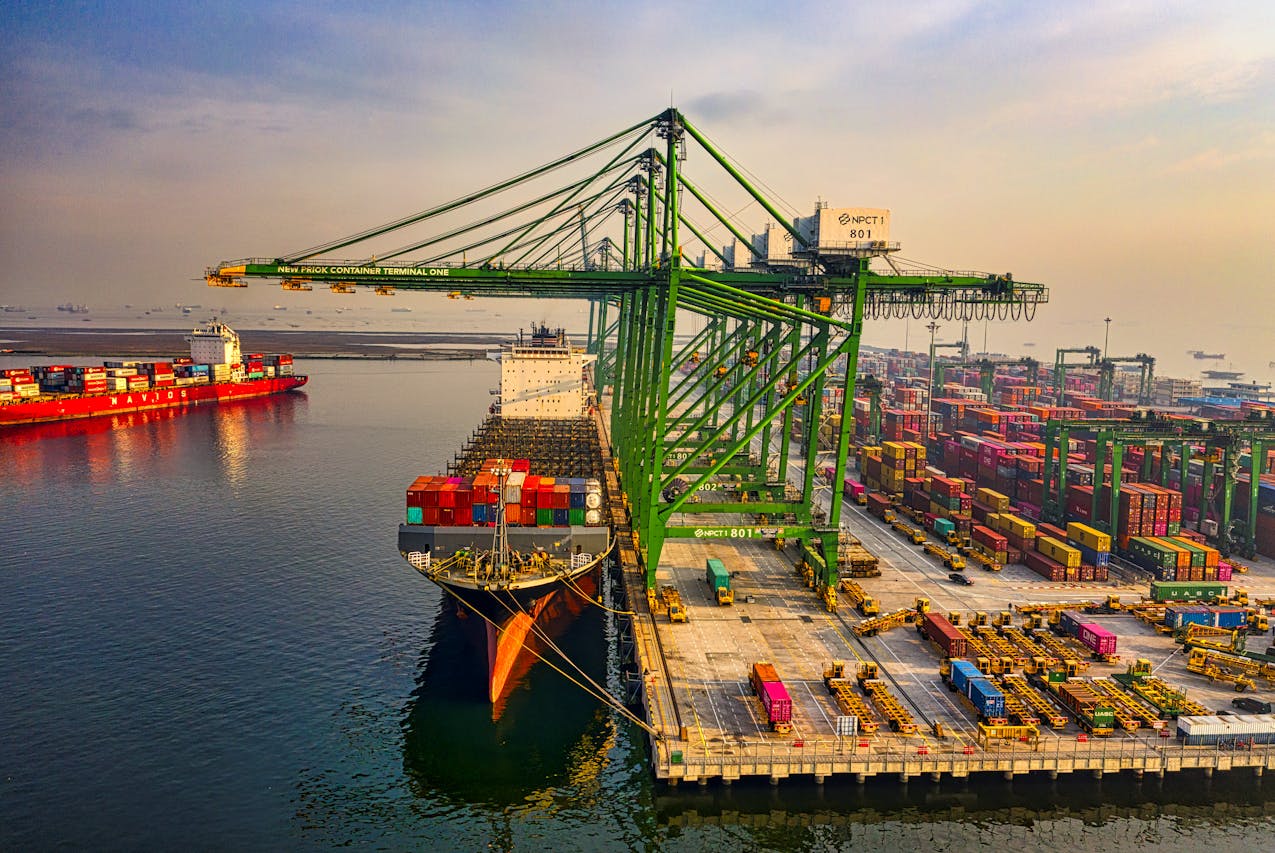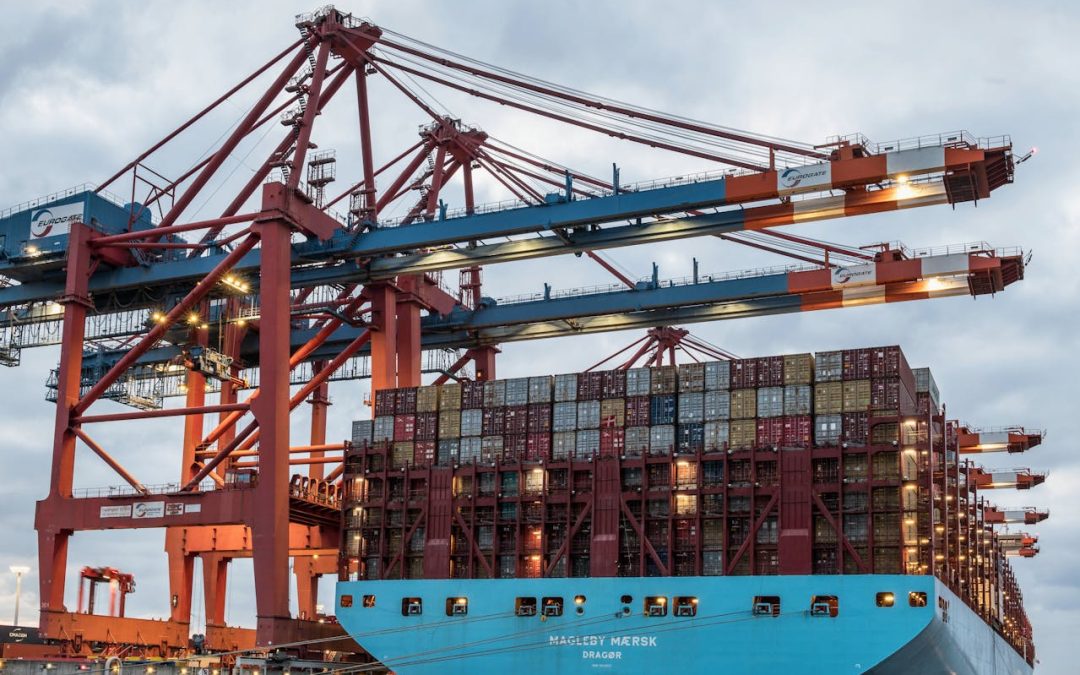ارتفعت تكاليف الشحن خلال العامين الماضيين. لقد أثر الطلب المتزايد والزيادات في الوقود والأحداث العالمية على المعدلات على مستوى العالم.
في حين أنه لا توجد أعمال شحن محمية ضد التغييرات، فإن الشركات التي لديها شحنات أصغر أو شحنات متكررة تشعر بشكل خاص بآثار ارتفاع التكاليف.
يعد تجميع الشحنات أحد الحلول التي يمكن أن تقلل التكاليف دون المساس بالخدمة الرائعة. لم اسمع بها مسبقا؟ استمر في القراءة لتعرف كل ما تحتاج إلى معرفته.
ما هو توحيد الشحن؟
توحيد الشحن هو عملية لوجستية لدمج عدة شحنات صغيرة من شركات شحن مختلفة في شحنة أكبر. ومن خلال تجميع الشحنات الصغيرة، يمكن إبقاء تكاليف النقل أقل.
تخيل أن ثلاث شركات شحن ترغب في شحن البضائع من المملكة المتحدة إلى فرنسا. إذا أرسلت كل شركة بضائعها بشكل منفصل، فسوف يتعين عليهم جميعًا تغطية تكاليف النقل الخاصة بهم. ومن خلال دمج شحناتهم في شحنة واحدة أكبر، لا يحتاجون إلا إلى تغطية ثلث تكاليف النقل لكل منهم.
قد تتساءل عن المكان المناسب لتوحيد الشحن في المناقشة حول شحن LTL (أقل من حمولة شاحنة) وشحن FTL (حمولة شاحنة كاملة). في شحن LTL، يتم نقل العديد من الشحنات الصغيرة من شركات مختلفة معًا في شاحنة. في الشحن FTL، تستخدم إحدى الشركات الشاحنة بأكملها لنقل بضائعها فقط...
تعمل عملية تجميع الشحن على سد الفجوة بين طريقتي الشحن من خلال دمج الشحنات الصغيرة، مثل شحن LTL، في شحنة واحدة كبيرة، مثل FTL.
كيف يعمل توحيد الشحن؟
فيما يلي عرض تفصيلي لعملية توحيد الشحنات النموذجية...
1 – المحطة الأولى
يتم إرسال الشحنات الصغيرة إلى مركز التجميع المركزي أو مركز المستودعات والتوزيع لتجهيزها للشحن.
2 – التجميع حسب الوجهة
وفي المركز، يتم فرز الشحنات الصغيرة حسب الوجهة وتجميعها بشكل مناسب. ستشكل مجموعات الشحنات هذه شحنات موحدة.
3 – التحميل
يتم تحميل مجموعات الشحنات الصغيرة على شاحنات أو حاويات كشحنة واحدة أكبر.

4 – النقل
والآن، بعد دمجها، يتم نقل الشحنة الأكبر حجمًا إلى وجهتها باعتبارها حمولة شاحنة كاملة أكثر فعالية من حيث التكلفة.
5 – المحطة النهائية
بمجرد وصول الشحنة المجمعة إلى وجهتها، يتم إلغاء توحيدها - مما يعني فصلها مرة أخرى إلى أجزاء الشحنة الأصغر حجمًا - ويتم تسليم كل شحنة أصغر إلى مستلمها.
أين يتناسب وكيل الشحن؟
الاجابة؟ في كل مكان .
يلعب وكلاء الشحن دورًا حاسمًا في إدارة الدمج. بدءًا من التنسيق مع شركات الشحن وترتيب النقل وحتى التعامل مع الجمارك والتفاوض على الأسعار، يقوم وكلاء الشحن بتبسيط عملية الشحن وتحسين الكفاءة لجميع المعنيين.
توفير المال مع توحيد الشحن
ومن خلال توحيد الشحنات، يمكن لشركات الشحن تقليل إنفاقها على تكاليف النقل.
لماذا؟
لأن معدلات LTL تميل إلى أن تكون أقل بكثير من معدلات LTL.
لا تحصل الشحنات الصغيرة على أفضل الأسعار لأن شركات النقل تعطي الأولوية للحمولات الأكبر. من خلال دمج الشحنات، فإنك تنضم بفعالية إلى شركات الشحن الأخرى لزيادة الحجم بشكل كبير وفتح خصومات الشحن بالجملة التي لن يكون من الممكن تحقيقها بمفردك مع شحنة صغيرة.
وتخيل ماذا؟ هذه فائدة أساسية للعمل مع وكيل شحن مثل Millennium Cargo. من خلال العمل بالنيابة عنك، وبفضل القوة التفاوضية التي تأتي من الشحنات الكبيرة، يمكننا الاستفادة من خبرتنا وشبكتنا لتأمين الخصومات وتمرير المدخرات إليك!
فوائد تتجاوز توفير التكاليف
مزايا توحيد الشحن لا تتوقف عند توفير المال. فيما يلي أربعة إيجابيات ضخمة لتوحيد الشحنات.
تحسين كفاءة
توحيد يبسط عملية الشحن. تميل الشحنات المجمعة التي يتم نقلها بالشاحنات إلى تقليل عدد مرات توقف التسليم مقارنة بالشحنات الصغيرة العديدة في كثير من الأحيان من شحن LTL. وهذا يؤدي إلى معالجة أقل وأوقات تسليم أسرع وتقليل مخاطر التلف أو الخسارة بشكل كبير.
انخفاض البصمة الكربونية
من خلال توحيد شحناتك، فإنك تقلل من عدد الشاحنات على الطريق. يدعم انخفاض استهلاك الوقود وانبعاثات الكربون جهود الشحن الأخضر التي تبذلها شركتك، والتي أصبحت عاملاً رئيسيًا في اتخاذ القرار بالنسبة للمستهلكين.
تدور العديد من مبادرات حكومة المملكة المتحدة حول الدمج بسبب مؤهلاتها الخضراء، مثل Go Ultra Low West، وهو مشروع نقل بقيمة 7 ملايين جنيه إسترليني يهدف إلى توفير البنية التحتية للتحويل على نطاق واسع إلى السيارات الكهربائية والمركبات ذات الانبعاثات المنخفضة للغاية في غرب إنجلترا.

زيادة السعة
يساعد تجميع الشحن الشركات على توفير المساحة في المنصات والشاحنات خلال فترات الانشغال عندما تكون شركات النقل عادةً ذات سعة منخفضة.
لوجستية مبسطة
يقوم وكلاء الشحن بإزالة الضغط الناتج عن تجميع الشحنات حتى تتمكن من جني الفوائد دون الحاجة إلى التعامل مع المسؤول. بدءًا من اختيار أفضل شركة نقل إلى الإشراف على عملية التفكيك، فإن هذا يحرر الشركات للتركيز على عملياتها الأساسية.
جني فوائد توحيد الشحن
يعد تجميع الشحنات بمثابة نهج استراتيجي للشحن يمكنه تقليل التكاليف بشكل كبير وتبسيط العمليات وتحسين الكفاءة.
هل تشعر بالقلق من جعل عملية الشحن أكثر تعقيدًا؟ سوف يتولى وكيل الشحن الودود مثل Millennium إدارة الدمج حتى لا تضطر إلى القيام بذلك.
تواصل معنا اليوم لتعرف كيف يمكننا توفير أموالك.

